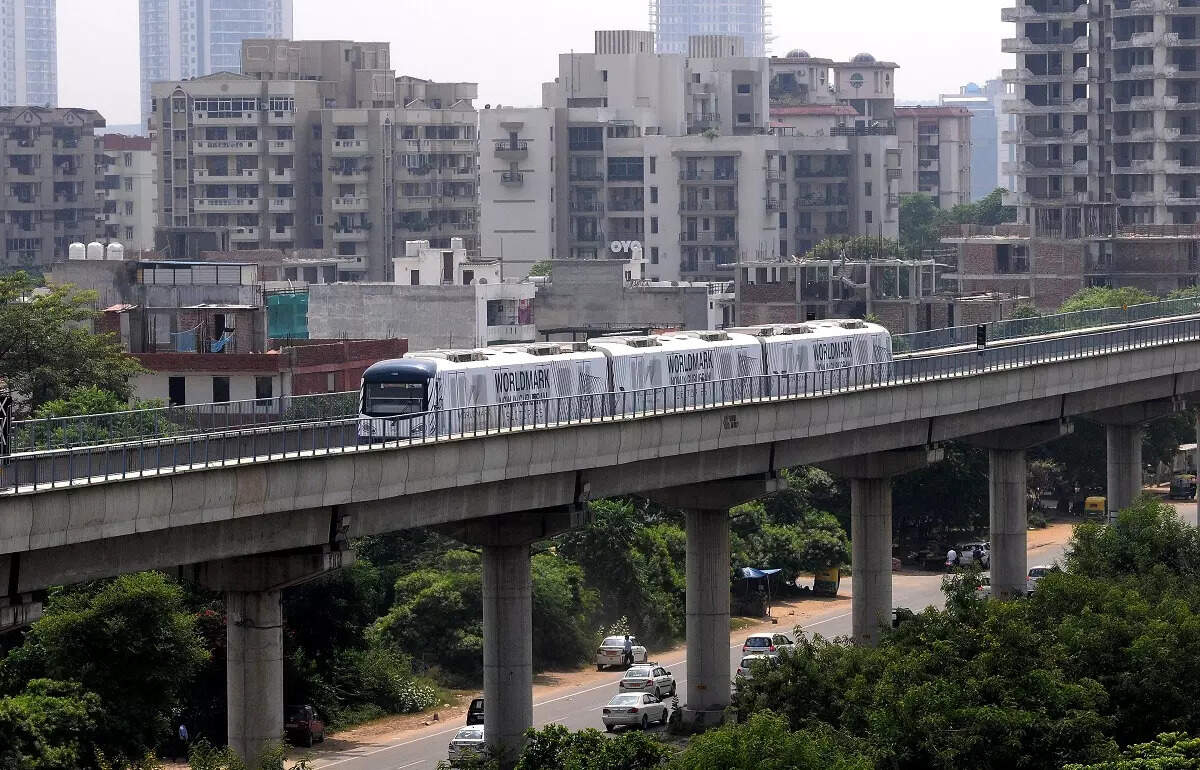
GURUGRAM: The city’s metro project has hit financial roadblock even before breaking ground, with costs ballooning by around 90% to Rs 10,266 crore from the initially sanctioned Rs 5,453 crore. The steep rise has been attributed to a combination of reasons, including design modifications, and tax increases.
The 28.5km corridor — planned to connect Millennium City Centre (MCC) and Cyber City with a spur to Dwarka Expressway — has faced multiple challenges since its conception. Although the project was sanctioned in 2023, the cost estimates were based on rates prevalent in 2019, which obviously proved inadequate against rising inflation and policy changes.
A major contributor to this surge in costs was a hike in GST rate from 12% to 18% in 2022, adding Rs 765 crore to the project’s estimates. The central GST and customs duty component more than doubled from Rs 299.3 crore to Rs 702.1 crore, while state GST jumped from Rs 264.1 crore to Rs 628.2 crore.
Design modifications also played a crucial role in the escalation of costs. The decision to replace a planned foot overbridge with a 1.4km spur line connecting Sector 5 with the railway station added Rs 429 crore to the budget. Additionally, the public investment board’s (PIB) mandate to treat the MCC-Cyber City corridor as independent from the existing Rapid Metro network necessitated purchases of new rolling stocks, pushing costs up by Rs 1,259.4 crore for an additional 57 coaches.
“In keeping with conditions of the PIB sanction, any subsequent cost escalation — whether due to price inflation, exchange rate variation, inclusion of new items not part of the original DPR, scope changes, or delays beyond the approved timeline — is to be borne by the SPV or state govt,” said a senior official familiar with the approval terms.
The project has also been affected by other infrastructural developments in the city. The alignment with the Delhi-SNB rapid rail corridor and land constraints around Udyog Vihar forced modifications to the metro route, relocation of stations, extensions of viaduct, and shifting of other utilities. The Basai station required redesigning to accommodate a third track for the Dwarka Expressway spur, while the MCC station needed modifications for additional facilities.
Further additions, including foot overbridges at seven stations and enhanced features at nine ‘iconic’ stations, increased civil construction costs substantially. The cost of building stations alone rose from Rs 756 crore to Rs 1,390 crore.
The revised project cost will be presented before the GMRL board for approval at their upcoming meeting on Monday. With the Centre’s contribution capped at the originally sanctioned cost, the state govt now faces the challenge of mobilising additional funds to bridge the significant financial gap.











